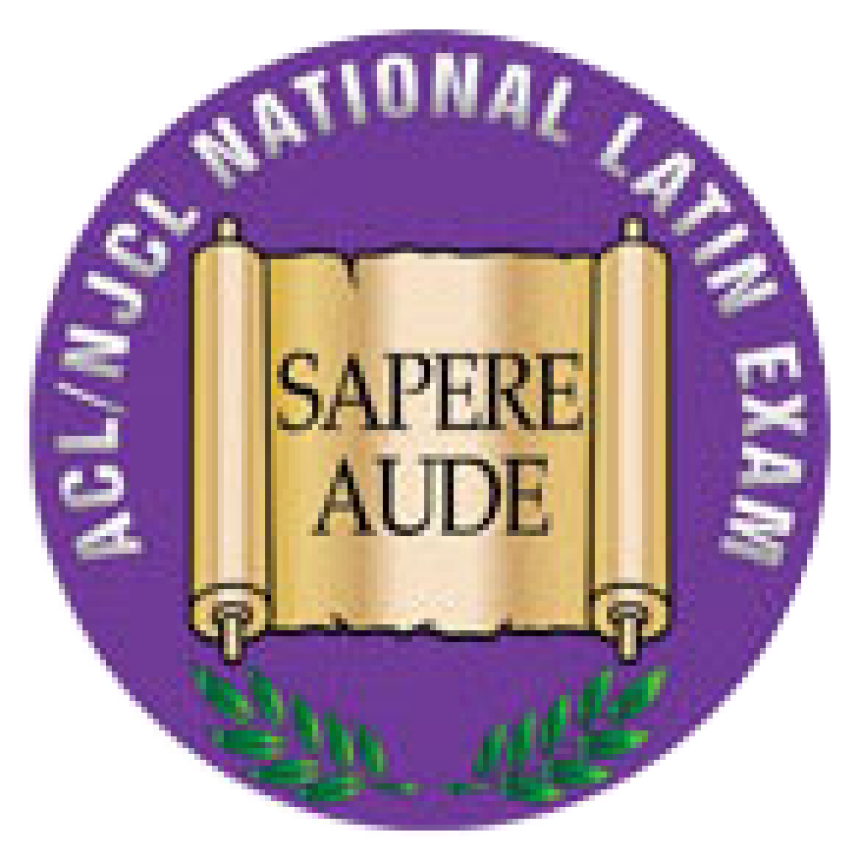Latin
At any Classical Christian school, the study of Latin is the sine qua non, that “without which” a classical education is not classical. Trinity students begin their study of Latin in 3rd grade and it is an integral part of the curriculum through 8th grade. Latin study is part of its emphasis on the Trivium of classical education, particularly in the Grammar (K-4th) and Logic (5-8th) stages of learning.
The study of Latin sharpens a student’s language skills. Almost 60% of English words are derived from Latin. The French, Spanish, Portuguese, and Italian languages are directly related to Latin, making it an excellent foundation for the study of a foreign language. TCS Latin teacher, Magistra Carolyn Hampson explains, “Latin opens the doors for language study. Upon encountering a lengthy, unfamiliar word, it can be pulled apart into Latin root words that will often clarify, and arrive at some rudimentary understanding of the word. Latin is the framework of a large part of the English language. Latin is systematic and structured, allowing students to understand the components of language: direct objects, indirect objects, predicate nominatives, and tenses.”
In addition, Latin is everywhere: E pluribus unum on a dollar bill, abbreviations a.m. and p.m., expressions such as carpe diem, ad hoc, alumni, Et tu Brute, and magnum opus all come from Latin. Magistra Hampson recalls, “Latin began as an eye-opening discovery for me. It was intriguing to learn vocabulary in another language and see the impact it has on the English language. This intrigue was also helped along by the publication of the Harry Potter series by J.K. Rowling, since she uses Latin throughout the book. It was a fantastic puzzle to translate Latin pieces while reading for pleasure (i.e. nimbus - cloud, rubeus - red, albus - white, severus - severe).”
Latin benefits students when they pursue higher education and is the language of theology, law, science, and medicine. Even the word Trinity is a word not found in Scripture but one needed to express the doctrine of the three-in-one God. "Tria" is three and "unus" is one; therefore, Tri-unity. Trinity -- both three and one at the same time.
Finally, like mathematics, studying a language like Latin requires a student to learn cumulatively, building concepts upon themselves as study progresses. This cumulative learning builds a strong foundation in a student’s mind for learning more complex and advanced concepts. The study of Latin at Trinity Christian School produces students who can read well, think critically, and lead themselves and others all for the Glory of God.

At Trinity, each year, seventh and eighth grade students take part in the The National Latin Exam where many students routinely receive marks of distinction such as summa cum laude and maxima cum laude.